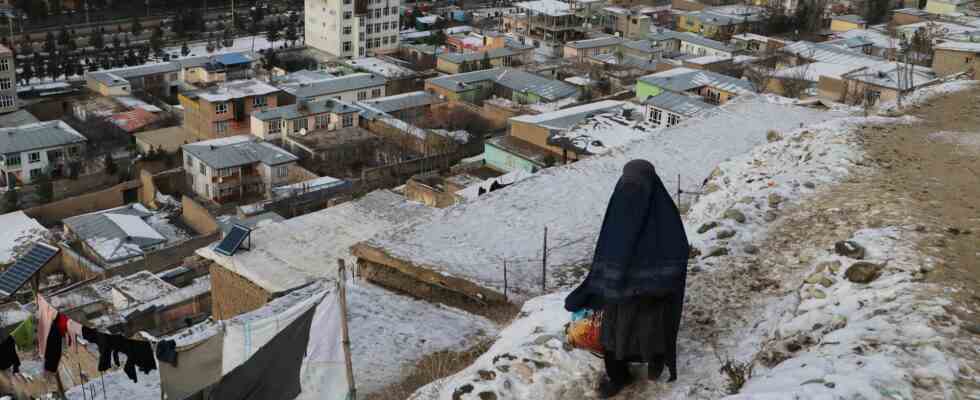As of: 01/18/2023 6:59 p.m
Bitter cold has been gripping Afghanistan for about a week. The authorities reported that 70 people had already died due to the weather. The harsh winter is exacerbating the humanitarian crisis in the country – and temperatures are expected to drop even lower.
Extremely low temperatures have already killed 70 people in Afghanistan this winter. The spokesman for the national disaster management reported the news agency dpa. Heavy snow has blocked the main roads in many places. Then there is the prevailing economic crisis, intensified by sanctions against the militant Islamist Taliban.
According to the United Nations, the “bitterly cold weather” is also the reason for the deaths of thousands of livestock in the country. The Ministry of Disaster Management spoke of 70,000 dead animals, which were an important source of food and income for many Afghans.
Temperatures could fall further
Cold winters are not uncommon in Afghanistan. Temperatures are dropping particularly low this year. On some days, down to minus 20 degrees Celsius were reported from the capital Kabul. Residents of the capital reported to the dpa about frozen water pipes. In the central region of Ghor, minus 33 degrees were measured over the weekend.
According to meteorologists, temperatures could drop even further in the coming days. “This winter is by far the coldest in recent years,” Afghan Meteorological Agency chief Mohammed Nasim Muradi told AFP. “We expect the cold spell to last a week or more.”
Hardly any international help possible
Afghanistan is internationally isolated because of the Taliban government. Even before the cold snap, the country was already experiencing one of the worst humanitarian crises in the world. More than half of the 38 million inhabitants have no secure food supply. Three million children are at risk of malnutrition.
Many organizations have halted their relief work on the ground for several weeks after the Taliban banned Afghan women from working in relief organizations at the end of the year. Extreme weather could affect Afghanistan even more frequently in the future, as the country is one of the countries most threatened by climate change.

